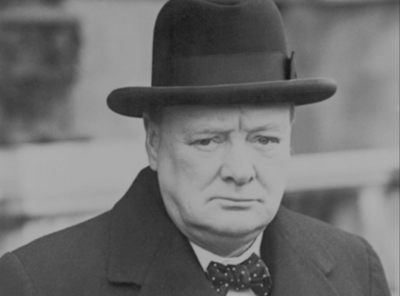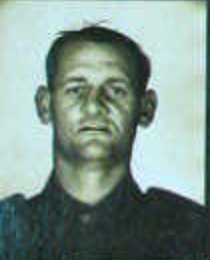What was happening in Goolwa and the World in May 1940?

Goolwa goes to war again 1939-1940 - MAY 1940 - by Frank Tuckwell OAM
This month’s opening news of the withdrawal of Allied forces from Norway has shocked the world as much as the German invasion and occupation of that northern country last month. The Allied withdrawal heightened Hitler’s confidence to the point that he ordered the invasion of Belgium and Holland. Once again Allied forces moved troops to aid both these countries and have fought heavy battles with heavy losses on both sides.
In London on May 10th, Prime Minister Neville Chamberlain losing his party’s support over his ineffective policies to counter Hitler’s ambitions, has resigned. Winston Churchill who has received a vote of support in the House of Commons has accepted position of Prime Minister. In his first speech to the House of Commons on May 13td, he spoke in stark unvarnished realism about what faces the nation and said,
“I would say to the House, as I said to those who have joined this government, I have nothing to offer but blood, toil, tears and sweat. We have before us an ordeal of the most grievous kind. We have before us many, many, long months of struggle and suffering. You ask, what is our policy? I can say: it is to wage war, by sea, land and air, with all our might and with all the strength God can give us; to wage war against a monstrous tyranny, never surpassed in the dark, lamentable catalogue of human crime. That is our policy”.
Despite the aid of the British Expeditionary force and French forces’ efforts to support the Belgian and Dutch neutrals, the Dutch army surrendered to the Germans on the 15th, resulting in rapid Nazi occupation of their lands. Belgium fell to the Nazi forces when their King Leopold ordered his forces to surrender on the 28th, despite the repudiation of surrender by the Belgian Government. The Allied forces have fought their way out of Belgium while fast-moving German armoured divisions pushed into France, trapping allied forces around * Dunkirk on the French northern coast.
It is clear now that France is in danger of being overwhelmed by the German invasion and the full fury of war is to be unleashed on Great Britain. On May 26, a plan called “Operation Dynamo” to evacuate the trapped British forces off Dunkirk beaches was put into effect. By using warships and merchant vessels and a fleet of fishing and small pleasure boats they have pulled thousands of troops from the beach and returned them to England.
The operation is expected to continue into the first 3 or 4 days of June. In these dark days, King George VI has called for a world day of prayer for deliverance of the Allied forces and keeping the nations steadfast.
In response to the king’s call to the empire for a world day of prayer, the chairman of the District Council of Port Elliot (Cr Walter Newell) has requested that Goolwa citizens of every denomination should come together and participate in a national prayer meeting chaired by Rev. O Nelson to be held on Sunday May 26th , in the Goolwa Institute hall.

While Private Jack Dodd of Goolwa [enlistment photo on left] awaited embarkation overseas, he spent his leave in Sydney, and was not impressed with some Sydney-siders as he observed “a bunch of ratbags around the Domain jeered the men who had enlisted and called us five bob a day murderers….I often wonder how they got on when things got tough and they were forced to join up”. Jack Spencer Dodd (1905-1986) who had ten years of militia training behind him when war broke out, decided he would join up. He had enlisted on Armistice day, November 11 last year and was posted to the 2/10th Battalion.
With the sailing from Sydney of the troopship SS MAURITANIA on May 5th, carrying members of the AIF force bound for Egypt, including Jack and other Goolwa men aboard, there is now indeed a conviction among the townspeople that war situation was grim and would touch us here in Goolwa through our servicemen heading into harm’s way. The inspiration to join the armed services caught the will of many more eligible young people of the town during this month of May, to follow those already on the high seas on their way to fight. John Joseph (Jack) Green, son of Frank and Alice Green, proprietors of the Goolwa Hotel, has joined the RAAF and is in training at the Wayville Exhibition building at present.
Jack Melville Spencer, the son of John James jnr. and Olive Spencer. (John James (Jack) Spencer jnr. was the 1919 charter president of the Goolwa RSL sub-branch and has served several terms) young Jack enlisted in the army on the 17th and is in training at Woodside Camp. Ron (R.W.) Oliver and Albert (A.G.) Whitford joined up in the army on the 22nd and were followed into the army by Jim (J.W.) Rothe on the 27th of this month.
Eric Dundas Scott, who was born in 1901, has served in the 3rd Light Horse in WW1 and earned a peacetime commission in 1925 as a Lieutenant in the militia, has enlisted on May 28, his 39th birthday. Bill Langmaid joined the army on May 30th and is in training at Woodside camp. This month Goolwa has seven more men to add to its enlistment contribution.
Concern for the people of England as they face the full force of Nazi aggression and possible invasion has moved the Goolwa RSL sub-branch to submit a proposal of placing British children in Australia, to the Federal executive meeting in Melbourne this month: -
“We feel that there are many homes where at least one child of British birth could find a home without cost to the government. Difficulties are admitted, but surely there are no insuperable obstacles to a scheme to aid the children who are victims of the gangster methods of Hitler”.
The letter had been sent to the SA state executive who forwarded it on with their endorsement. The Goolwa sub-branch suggested that the league’s 1,300 sub-branches throughout Australia could be used as distributing centres.
At the Goolwa barrage, the demolition of all redundant buildings and plant sold off in the April disposal sales there has almost been completed. A few heavy road transport trucks are still shuttling the last of the demolished buildings from the site. The P.S. ROTHBURY left early this month bound for Mildura towing a 90foot derrick barge and the barge AURORA. In the Port of Goolwa currently is the P.S. INDUSTRY. The steamer’s engineer, W. O’Donnell, suffered a massive heart attack onboard and was rushed by car to the South Coast District Hospital, but died whilst in transit. An old retired former river skipper who died in Goolwa last month, Captain George Grundy, was skipper of the INDUSTRY for many years.
The arts and tasks of managing the huge body of water in the lower lakes and river has to be finely tuned by what is known and what is to be learned about factors of weather, wind effects and the cyclic events of flood water flows. The big lake is like a saucer of water where air blowing from one side forces water to bank up on the other. So, it was later this month when it required the lifting of around 100 stop-logs at the Goolwa barrage for the first time after several months of the barrage’s closure. This action was taken when several issues became known that caused a fluctuating pool level. By drawing the logs, a large amount of water began to flow through to relieve a wind-driven surge of water at the top of the lake, causing flooding to a considerable amount of land there.
_________________________________
Foot note:
*Pte John (Jock) Wesley Graham (1909-1982) a Scot-Canadian, born in Regina, Canada was a wounded member of the Second Cameronians (Scottish Rifles) in the British Expeditionary Force rescued from the beach at Dunkirk. Invalided from active service, he spent the rest of WW2 as a riveter at Hawker-Siddeley works in England building fighter aircraft. Migrating with his family to Australia, he eventually settled in the district including at Sumner Street, Goolwa. Two of his five daughters, Susan and Jane attended Goolwa Primary School, and another Patricia (Patty) Ann became Mrs Tuckwell, wife of Frank. Jock and Josephine (Josey) also have a son Tony, who was a career soldier, now retired at Tweed Heads, NSW. Jock’s grandson, Captain David Graham, an Afghanistan veteran, carries on the family army tradition and lives in Queensland.